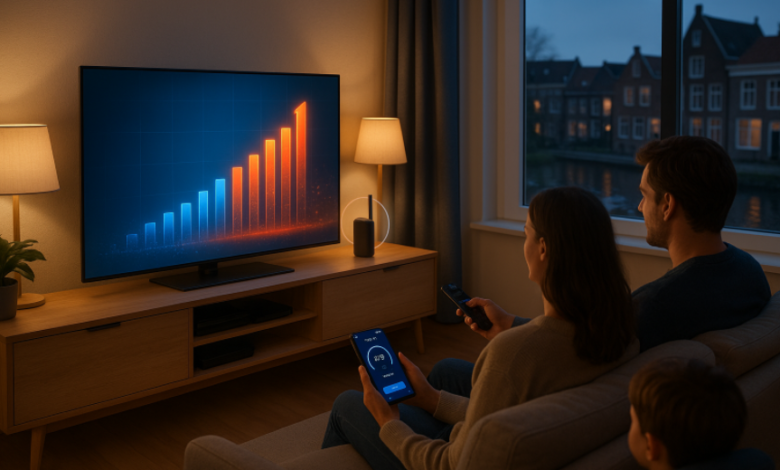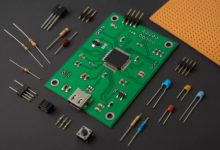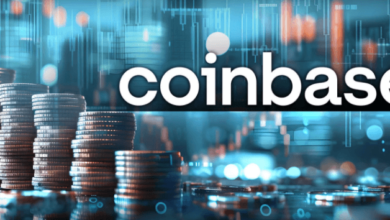How Much Internet Speed Do You Need for IPTV?

The way we watch television is changing fast, and IPTV (Internet Protocol Television) is leading the transformation for viewers in the Netherlands and around the world. With IPTV, you get both live channels and on-demand content through your regular internet connection. This flexibility is great, but your viewing experience depends heavily on the speed and quality of your internet. If you want smooth, uninterrupted TV streaming, getting your IPTV internet speed right is essential.
This guide explains everything you need to know about IPTV internet speed: what IPTV is, how much speed you actually need, what factors matter for stable streaming, and plenty of practical tips to keep your TV nights running without a hitch.
What is IPTV and How Does It Work?
IPTV stands for Internet Protocol Television. Unlike traditional cable or satellite TV, IPTV uses your broadband connection to deliver TV channels and video content to your devices. You can watch live television and stream on-demand shows, movies, or sports, all using your home network instead of a separate TV signal. Streaming is handled by an app or IPTV box that connects to your IPTV provider. Your video content is sent digitally over your internet connection, either directly to your smart TV, your computer, or your streaming box.
Why Is Internet Speed Important for IPTV?
With IPTV, the quality of your viewing session is tied directly to your internet speed. If your internet is too slow, you may see:
- Annoying buffering and pausing
- Lower video quality or blurry images
- Lagging, freezing, or stutter while streaming
- Longer load times to start or change channels
A fast, steady connection keeps your TV shows, movies, and sports running seamlessly. The right IPTV internet speed is the foundation of an enjoyable home entertainment setup.
Factors Affecting IPTV Internet Speed Requirements
Video Quality and Resolution
The video quality you choose makes a big difference in how much speed you need. Higher resolutions mean larger files and more data to deliver each second, so you need more bandwidth.
- Standard Definition (SD): 1.5 to 3 Mbps per stream
- High Definition (HD): 5 to 8 Mbps per stream
- Full HD (1080p): 8 to 12 Mbps per stream
- 4K (Ultra HD): 25 Mbps or more per stream
Choosing a higher quality stream gives you better visuals, but only if your connection can handle it.
Number of Devices
Think about how many people and devices in your home will use the internet at once. If two family members are watching different HD shows, your total bandwidth requirement doubles. The more simultaneous streams, the more internet speed you need.
A smart guideline: add about 5 Mbps or more for every extra HD stream.
Wired vs Wireless Connections
A wired (Ethernet) connection provides more stable, consistent speeds than WiFi. Wireless can be affected by distance, interference, or walls. If you stream IPTV over WiFi, check the strength and reliability of your signal. In bigger homes, or those with thick walls, you may notice speed drops or more buffering when using wireless.
ISP Throttling and Network Congestion
Some internet providers may slow down speeds for streaming during busy periods or limit IPTV traffic in general. These artificial limits, called throttling, can reduce your real-world streaming quality, even if your plan advertises high speeds. Keep an eye out for patterns: do issues happen more often during peak hours, or only on weekends?
See also: How Technology is Changing Construction Clean-Up Fresno
Recommended IPTV Internet Speed for Different Uses
Exactly how much speed is enough? It depends on how you watch and how many people are streaming at once.
Standard Definition (SD)
- Recommended speed: at least 3 Mbps per stream
- Ideal for smaller screens, older TVs, or using less data on mobile
High Definition (HD)
- Recommended speed: 8 Mbps per stream
- Our best pick for most household TVs and regular viewing
Full HD (1080p) and 4K Ultra HD
- Full HD: 12 Mbps per stream
- 4K Ultra HD: 25 Mbps or higher per stream
- To watch in 4K, you need a fast connection and both your TV and IPTV device must support 4K streaming.
Multi-device Households
For homes where several people watch TV or use the internet at the same time, add up the speed needed for each stream. For example:
- 2 people watching HD: minimum 16 Mbps
- 2 people in HD + 1 in SD: minimum 19 Mbps
- For each extra HD stream, plan for another 5 to 8 Mbps
For local tips and guidelines specific to Dutch households and Nederlandse IPTV, read more from trusted IPTV experts.
How to Test and Improve Your IPTV Internet Speed
Running a Speed Test
To find out if your current connection is up to standard:
- Go to a reliable site like Speedtest.net or Fast.com.
- Run a test using the same device you use for IPTV.
- Test at the time of day you usually watch to see your real-world speed.
Interpreting Results
Pay attention to:
- Download speed: This matters most for streaming TV.
- Ping/latency: Lower numbers are better, especially for live streams.
- Stability: If your speed jumps up and down, you may see stuttering or buffering even if your average speed looks fine.
Troubleshooting Common Issues
If IPTV runs slowly, try these:
- Move closer to your WiFi router or switch to a wired connection
- Restart your router and TV or streaming device
- Disconnect devices you’re not using from your network
- Upgrade to a modern router if your house is large or multi-story
- Consider a mesh WiFi system for full-home reliable coverage
IPTV Internet Speed vs Other Streaming Services
How does IPTV compare to services like Netflix or YouTube in terms of speed? For live IPTV channels, requirements may be higher.
| Streaming Service | SD (Mbps) | HD (Mbps) | 4K (Mbps) |
|---|---|---|---|
| IPTV | 3 | 8 | 25 |
| Netflix | 1.5 | 5 | 25 |
| YouTube | 1 | 5 | 20 |
As you can see, meeting IPTV’s needs also guarantees smooth streaming for other platforms.
What Happens If Your Internet Is Too Slow for IPTV?
If you try to stream IPTV without enough speed:
- Buffering: Your show or live channel may pause to load
- Lower video quality: Streams can drop in resolution automatically
- Losing the connection: If your speed is too far below what’s needed, streaming may stop entirely
How can you tell if speed is the cause? Test with another app like YouTube on the same device. Or try a faster network, like a mobile hotspot, and see if your experience improves.
Data Usage, Fair Use, and Limits
High-quality IPTV, especially in HD or 4K, can use a large amount of data.
Typical consumption rates:
- 1 hour SD: about 1 GB
- 1 hour HD: about 3 GB
- 1 hour 4K: 7–10 GB
Some Dutch and European ISPs have data caps or “fair use” guidelines. Always review your internet plan to avoid slowdowns or extra charges.
IPTV in the Netherlands: Local Considerations
Most Dutch households, especially in cities, enjoy reliable and fast broadband perfect for IPTV and streaming. However, rural areas can experience slower connections or service interruptions.
Most popular IPTV providers and Dutch internet packages support HD streaming and beyond, but it’s worth testing your real connection speed, especially during busy hours in your neighborhood.
Some ISPs in the Netherlands even give priority to IPTV traffic for a better experience. If you continue to have issues, ask your provider if they offer IPTV-optimized plans or tips specific for your postcode.
Tips for a Smoother IPTV Experience
- Use Ethernet cables for your main TV or box where possible
- Upgrade to fiber optic broadband if you can
- Place your WiFi router in a central area, away from obstructions
- Keep your software and streaming apps up to date
- Don’t run large downloads or uploads during TV time
- Upgrade to a modern router or mesh WiFi if you have coverage concerns
Small improvements often make a big difference in everyday streaming.
Frequently Asked Questions (FAQ)
Can I use mobile internet (4G or 5G) for IPTV?
Yes, many people use mobile broadband for IPTV, especially in the Netherlands where 5G is widely available. Just check your data plan for limits, and make sure your signal is stable enough for HD or 4K streaming if needed.
Will a VPN slow down my IPTV internet speed?
VPNs tend to reduce internet speed and can add extra delay. Use a reputable VPN service and connect to servers close to your location for the best experience.
Does the type of streaming box or TV matter?
Definitely. Older devices may struggle with HD or 4K streams, even if your internet speed is fast enough. Make sure your box or smart TV supports the resolution you want to watch.
How do I know if my ISP is throttling IPTV?
If you notice slower speeds only when streaming, especially at certain times, your provider could be limiting specific types of traffic. Check their terms, and ask about IPTV-friendly packages.
What if my streams are still buffering after following all the tips?
Try contacting your IPTV provider or ISP for support. Sometimes, issues are on their end, and they might have solutions or special recommendations.
Suggested SEO-Friendly Blog Title
How Much Internet Speed Do You Need for IPTV? (Complete Guide for Smooth Streaming)
160-Character SEO Meta Description
Find out the ideal IPTV internet speed for smooth, buffer-free streaming. Learn essential tips, test your speed, and optimize IPTV in the Netherlands.







